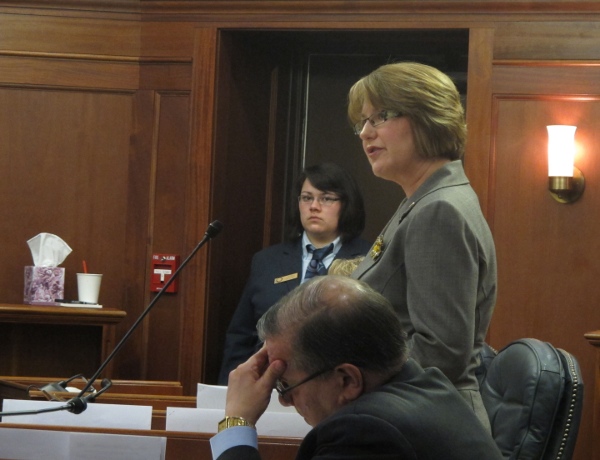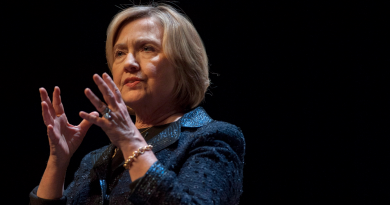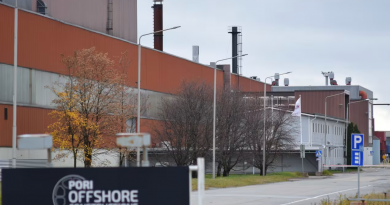Alaska Senate votes to slash taxes on North Slope oil producers
 JUNEAU – With Alaska’s oil reserves and production declining, the state should cut taxes for oil companies in the hopes they’ll pump the remaining oil faster, the Alaska Senate decided Wednesday evening.
JUNEAU – With Alaska’s oil reserves and production declining, the state should cut taxes for oil companies in the hopes they’ll pump the remaining oil faster, the Alaska Senate decided Wednesday evening.
“The goal is to increase production and make Alaska competitive,” said Anna Fairclough, R-Eagle River, a top proponent of cutting taxes for the oil industry.
Following a contentious and long day of debate, the Senate passed billions of dollars in tax cuts by an 11-9 vote.
Senate Bill 21, first introduced by Gov. Sean Parnell and then made costlier in the Senate, would have cost the state between $5 billion and $6.3 billion over the next six years, but that amount was reduced slightly by an amendment during the debate.
Still, the revenue losses will likely guarantee budget deficits in upcoming years.
“This failed policy will bring us an income tax and the surrender of our Permanent Fund dividends,” said Sen. Hollis French, D-Anchorage, one of the tax cut’s most outspoken critics.
The bill represents a major overhaul of the state’s current oil tax regime, known as ACES, passed in 2007 and championed by then-Gov. Sarah Palin.
Before voting to pass the tax cut, the Senate’s Republican majority voted down a dozen amendments and passed one aimed at limiting the impact of the cuts. One of the most dramatic changes proposed was an attempt by another Republican and longtime Senate leader on fiscal policy to protect production from Prudhoe Bay, North America’s largest oil field, from the tax cuts as proposed under SB 21.
Sen. Bert Stedman, R-Sitka, said Prudhoe Bay and Kuparuk, the North Slope’s second biggest field, didn’t need the cuts, calling the legacy fields “extremely profitable any way you want to measure them.”
Cutting taxes on the hopes of squeezing even more profit from them was unlikely to persuade producers to pump them faster, he said.
But Sen. Cathy Giessel, a Southcentral Republican, said the huge but aging fields were exactly where the cuts were needed most.
“That’s where most of the oil is,” she said. “It would really not be very smart to exempt them from incentives.”
Sen. Pete Kelly, R-Fairbanks, said he didn’t agree with the predictions of decline and said they could be turned around with tax cuts.
“I don’t accept decline as inevitable,” he said. “If I accept that I accept failure as our future.”
One amendment that did pass was sponsored by Sen. Peter Micciche, R-Soldotna, who urged that the bill on the Senate Floor be changed to have a constant base rate of 35 percent, rather than the drop to 33 percent in 2017 that was adopted by the Senate Finance Committee.
Micciche said the state would gain little new investment by dropping the tax rate by 2 percentage points in 2017.
“There is little evidence to support that a step down to 33 percent could be expected to improve the already sound financial incentives,” he said.
That amendment was important to Sen. Click Bishop, R-Fairbanks, as the crucial final vote to ensure passage, said Sen. Lesil McGuire, R-Anchorage.
The elimination of the future 2 per cent tax reduction is expected to reduce the projected size of the full tax cut by $500-$600 million, or about 10 percent of Senate Bill 21’s six-year total. At a Republican press conference later, Senate President Charlie Huggins, R-Wasilla, praised Bishop for the vote passing the bill.
“He is a good man, he has a heart of gold,” Huggins said.
While members of the Republican majority said they were confident the tax reductions would result in new investment in Alaska by oil companies, yielding significant new oil into the trans-Alaska oil pipeline, the state’s Big Three oil producers – Exxon Mobil Corp., ConocoPhillips and BP – called the cuts too incremental to make big new projects profitable enough to develop.
Progressivity: Big Oil bane or boon for energy-starved Alaska?
Under the current policy, oil taxes increase along with the price of a barrel of oil. Micciche, a newly-elected senator who also works for ConocoPhillips, said that progressively-increasing taxes have made Alaska’s oil patch an unattractive investment.
“Word on the street is our punitive system of progressivity has made us uncompetitive,” he said.
Democrats called that progressivity a way to let Alaskans share in windfall profits at a time when oil prices were hurting Alaskan families.
Senate Minority leader Johnny Ellis, D-Anchorage, questioned such a massive tax cut for oil companies unwilling to commit to investing some of that return into new oil production from the North Slope.
“Not a single one says ‘Yes, there’ll be more oil in the pipeline if you pass this bill,’” he said.
Along with the new base rate up from the current 25 per cent in ACES, SB 21 also:
- Eliminates existing capital expenditure credits
- Eliminates progressivity
- Adds incentives for new oil, and
- Adds a $5 per barrel tax allowance.
The bill now faces a reconsideration vote Thursday, before heading to the Alaska House for a Friday hearing in the Resources Committee.
Whereas the Senate for years stymied Parnell’s campaign to slash taxes, House leaders have remained relatively in line behind the governor.
Contact Pat Forgey at pat(at)alaskadispatch.com
For more stories from Alaska Dispatch, click here



